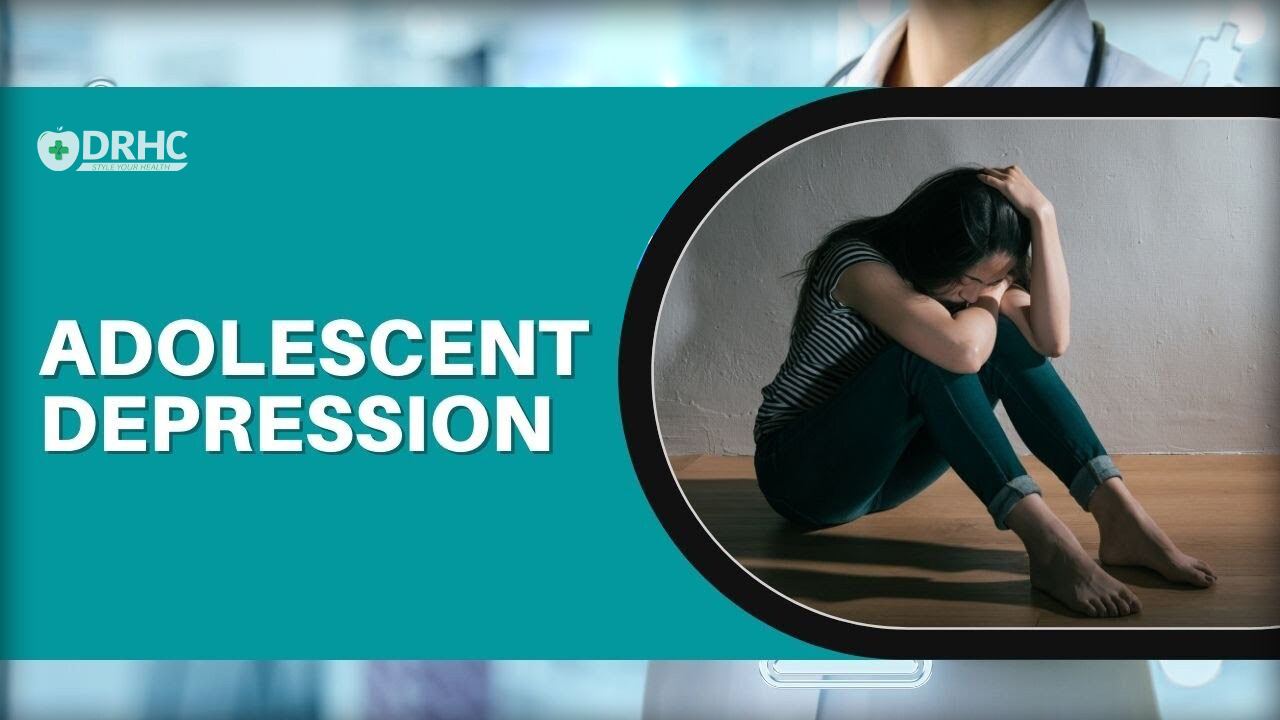Depression in Teenagers and Adolescents - DRHC Dubai Psychiatry Clinic
Depression in teenagers and adolescents is a significant mental health concern that requires careful attention due to its potential impact on various aspects of their lives. It presents with a range of clinical features that demand careful assessment and understanding. Recognizing these symptoms and conducting a thorough diagnostic evaluation is crucial for effective intervention.
Clinical Features of Depression in Adolescents
- Mood Changes: Persistent feelings of sadness, hopelessness, or irritability are common and last for an extended period. They might seem more irritable than sad.
- Behavioral Changes: Withdrawal from social activities, loss of interest in hobbies, academic decline, or changes in sleep and appetite patterns (either increased or decreased).
- Physical Symptoms: Frequent complaints of headaches, stomachaches, or other unexplained physical ailments are seen.
- Low Self-Esteem: Negative thoughts about oneself, feelings of guilt, or self-criticism may manifest. Adolescents might also express thoughts of self-harm or suicide. This is a serious concern that requires immediate attention.
- Risk-Taking Behaviors: Engaging in reckless behavior, substance abuse, or self-harm.
Diagnostic Evaluation
Accurate diagnosis of depression in adolescents involves a comprehensive assessment that includes clinical interviews with teenagers and their families and a detailed psychological evaluation to assess the severity of symptoms and their impact.
Diagnosing depression in adolescents can be challenging due to:
- Developmental Changes: Mood swings and changes in behavior are common during adolescence, making it harder to distinguish from depression.
- Reluctance to Communicate: Adolescents might be hesitant to express their feelings, making it difficult to identify underlying emotional distress.
- Co-occurring Conditions: Depression often coexists with other mental health conditions like anxiety or substance abuse, complicating diagnosis and treatment.
Integrated Approach for Management
A holistic approach combining medication and behavioral interventions offers the best chance of success. It's crucial to involve mental health professionals who specialize in adolescent mental health to tailor the treatment plan.
- Medication - Selective Serotonin Reuptake Inhibitors (SSRIs) are antidepressants, like fluoxetine (Prozac), sertraline (Zoloft), or escitalopram (Cipralex), are commonly prescribed for teenagers. They help by balancing serotonin levels in the brain.
- Psychotherapy (Talk Therapy): Cognitive-behavioral therapy (CBT), interpersonal therapy (IPT), or other forms of psychotherapy are beneficial. These therapies help adolescents identify and change negative thought patterns and behaviors contributing to their depression.
- Family Therapy: Involving the family in therapy can improve family dynamics, communication, and support systems for the depressed adolescent.
- Healthy Lifestyle Changes: Encouraging regular exercise, adequate sleep, a balanced diet, and limited screen time can positively impact mood and overall well-being.
- Stress Reduction Techniques: Teaching stress management skills, such as mindfulness, relaxation techniques, or yoga, can help adolescents cope with stressors more effectively.
Conclusion
Depression in teenagers and adolescents requires a holistic approach to assessment, considering the unique challenges of this developmental stage. It is important to accurately diagnose and initiate appropriate interventions, ensuring that young individuals receive the support needed to navigate their emotional well-being.
.png?width=281&height=59&name=bookanappointment%20(1).png)
If you are experiencing any signs and symptoms of a Depression in Teenagers and Adolescents, please don't hesitate to contact our best psychiatrist in Dubai at the Dr. Rami Hamed Center. Call +97142798200 to Schedule Your Appointment Today. We have the best psychiatrist doctor, and our psychiatry clinic is situated in Dubai Healthcare City.




.png?width=281&height=59&name=bookanappointment%20(1).png)
.png?width=1080&height=1080&name=DR%20KIRTI%20(1).png)





